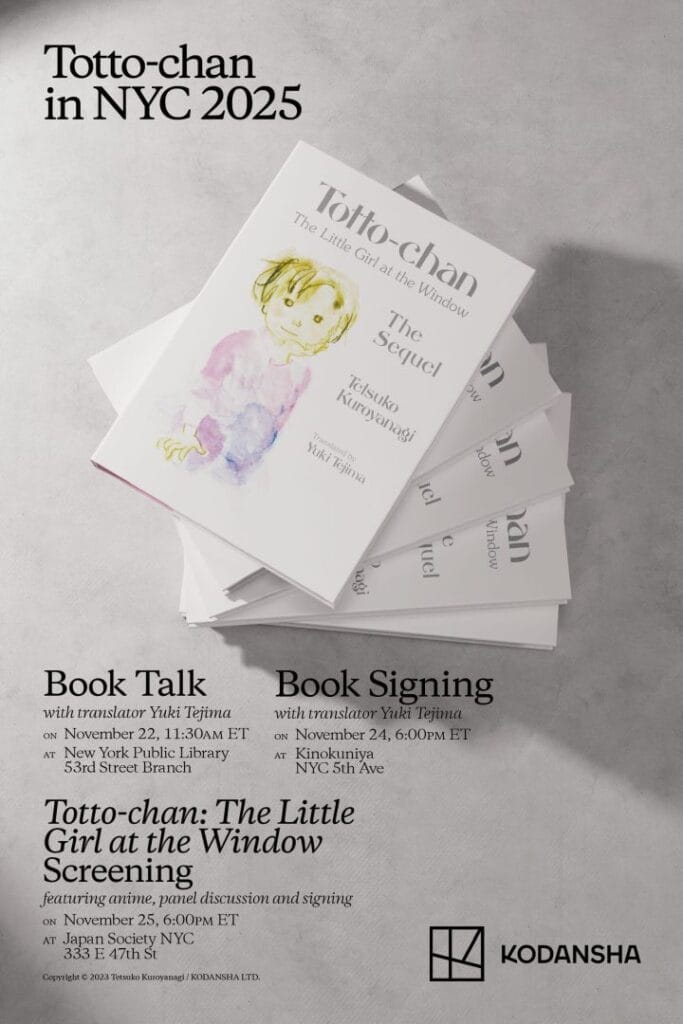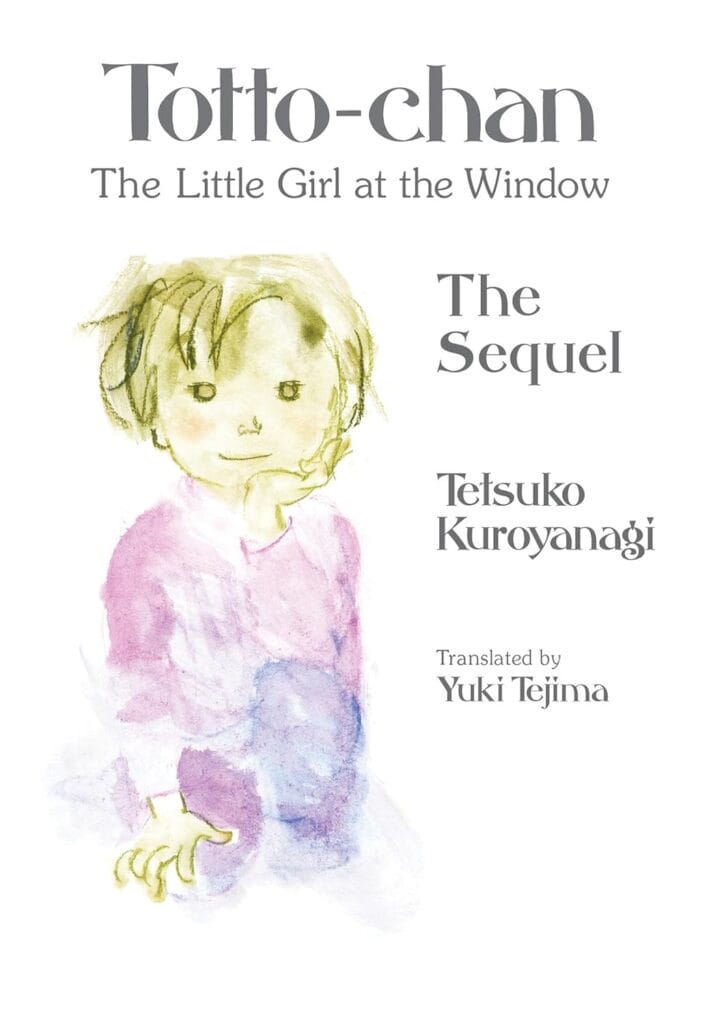Anime Herald When you were teaching at the Okinawa Actors School, what Broadway shows did you incorporate into your lessons?
Yuki Tejima: At the school, my students were talented singers and dancers who had not been exposed to a lot of musicals and theater growing up. So I wanted to start with great music, relatable storylines, characters they could connect to. RENT was at its height on Broadway at the time, and I was listening to the soundtrack in the car on my way to school one morning. Roger’s song, One Song Glory, started to play and I thought, “I should start here.” The lyrics. They’ll get it.”
We ended up going through the entire musical, song by song, word for word in English. My students were teenagers, and they fell in love. It wasn’t long before we were doing West Side Story. I had fifty gifted Japanese singers and dancers, performing their hearts out in English. It was magnificent.
Anime Herald: Why was moving from other forms of translation for Japanese novels such a huge jump for you?
Yuki Tejima: I grew up reading Japanese novels in secret in Los Angeles, trying to keep my school friends from finding out that I spoke or read Japanese. This put the “Japanese novel” in a special category for me, one that I didn’t think I had any business translating. “Who am I,” I thought, “thinking I could do such work?”
It wasn’t so much the translation of the text that intimidated me as it was the idea of translating the Japanese novel, period. Translating Tetsuko Kuroyanagi and this book, for example. This is not the kind of thing you dream will ever, ever happen to you.

Anime Herald: What’s something you would like our readers to know about the challenges of being a translator?
Yuki Tejima: That translating a book isn’t necessarily just about sitting behind a computer alone and never having to socialize with anybody else. There is so much communication and engagement involved in being a professional translator, with your editor and publisher, of course, but with readers, fellow translators, publishing and bookselling professionals who work in English and in Japanese (in my case) that all help to keep the industry going. Becoming a literary translator has forced me out of my shell in ways that have stunned me.
Anime Herald: What’s your standard coffee order when visiting a café for the first time?
Yuki Tejima: If it’s a café that cares about the coffee they’re serving, then black coffee without milk or sugar. Except when I’m in a classic kissaten coffee shop in Japan, where I know the coffee will be so bold I will need milk in one of those teeny jars.
Anime Herald: Tetsuko Kuroyanagi is an absolute legend. She holds a special place in my heart because we share a birthday (August 9th). How did you react when you found out you would be translating Totto-chan, the Little Girl at the Window: The Sequel?
Yuki Tejima: I mentioned above that I couldn’t believe it was happening, and I remember typing back to my editor that I would love to translate the book, slowly and carefully, one key at a time, because I felt like the project could slip through my fingers and vanish if I made one false move. I then called my mother and basically screamed. Tetsuko Kuroyanagi is a legend in our household – I grew up hearing how much my mother loves her and her work.
Anime Herald: Totto-chan, the Little Girl at the Window: The Sequel will necessarily cover some dark material, because the main character will be more aware of what is happening in Japan. What kind of guidance were you given in terms of tone?
Yuki Tejima: My editor was wonderful and encouraging and didn’t “correct” me in terms of tone or voice. I read and reread the first Totto-chan book, hoping to keep a similar tone – thoughtful, whimsical, curious, and honest. I think the first book helped set the tone for me in terms of translating with sensitivity toward darker topics such as the war. One of the mind-boggling things about Totto, however, is how she manages to stay thoughtful, whimsical, curious, and honest, even in the most devastating moments.
Anime Herald: Tokyo and Los Angeles are vastly different cities. What do you love most about Tokyo? What do you love most about Los Angeles?
Yuki Tejima: What I love most about Tokyo is how accessible and punctual everything is by train or bus, as opposed to sitting in LA traffic anytime you want to go anywhere. The brilliant bookstores, big and small, were how I familiarized myself with Tokyo when I first moved to the city, as they took me to neighborhoods I would never know about otherwise. But the weather… As someone who grew up in sunny LA, I feel there are too few days in a single year in Tokyo where you can walk outside without having to worry about the heat, rain, humidity, cold, allergies, typhoons… the list goes on. I love LA for being LA, sunny, bright, warm, dry. I think about LA all year long and how I long to be there when I’m shivering or sweltering in Tokyo.
Anime Herald: Since New York is my city, I have to ask: Do you have any stories you would care to share from your time living here?
Yuki Tejima: I love New York for the same reasons I love Tokyo – the walkable city, being able to pop into bookstores and cafes. But I remember moving there in my early thirties and starting my career over, and one day being asked by my boss (who was kind) to go to Home Depot and buy a trash can for the office. As I walked up 5th Avenue hugging a trash can, I did wonder where I was going with it exactly. I have wonderful memories of the city too, but I return to moments like that often in my mind.

Anime Herald: Can you give an example of a translated novel where the translation itself impressed you?
Yuki Tejima: Polly Barton’s translation of The Place of Shells by Mai Ishizawa was astonishing. The Akutagawa Prize-winning book is layered and deliberately slow, at times surreal and difficult to grasp even in its original language, and I felt Polly’s exquisite rendition truly brought the novel to life in English. It is very literary in the way that Akutagawa Prize books often are, not meant to be driven by plot, but if you’re looking to sink into your literature and swim around in a sea of prose, this one is a quiet marvel in translation.
Anime Herald: What are some novels that are available in English that you would recommend our readers check out?
Yuki Tejima: There are quite a few Japanese novels in translation now, meaning that readers with different tastes can find a book with which they resonate, without overlapping with one another. If you want to know which authors are sizzling in Japan right now, read Sympathy Tower Tokyo by Rie Qudan (translated by Jesse Kirkwood) or Jackson Alone by Jose Ando (translated by Kalau Almony) coming out early 2026. For mesmerizing storytelling, the Booker-shortlisted Under the Eye of the Big Bird by Hiromi Kawakami (translated by Asa Yoneda), and for the most page-turning novel you’ve ever read, though tread carefully due to violent content, The Night of Baba Yaga by Akira Otani (translated by Sam Bett). To start.